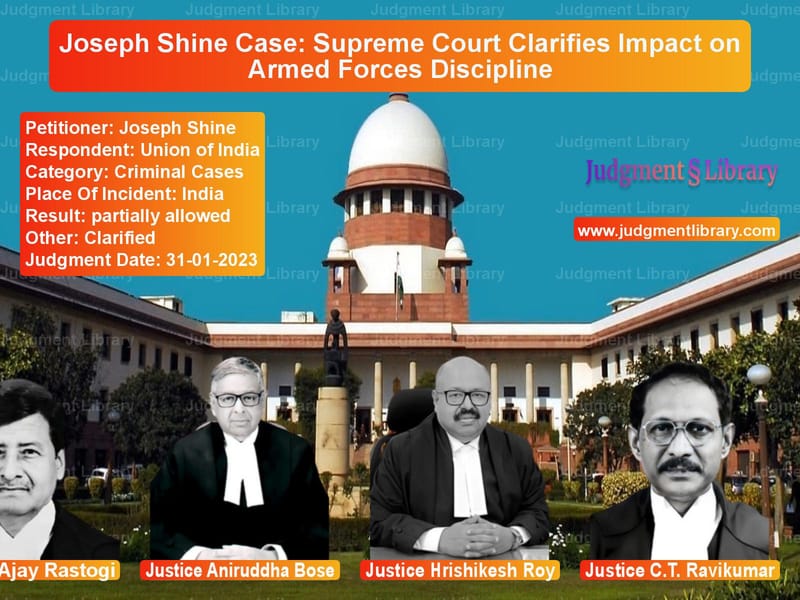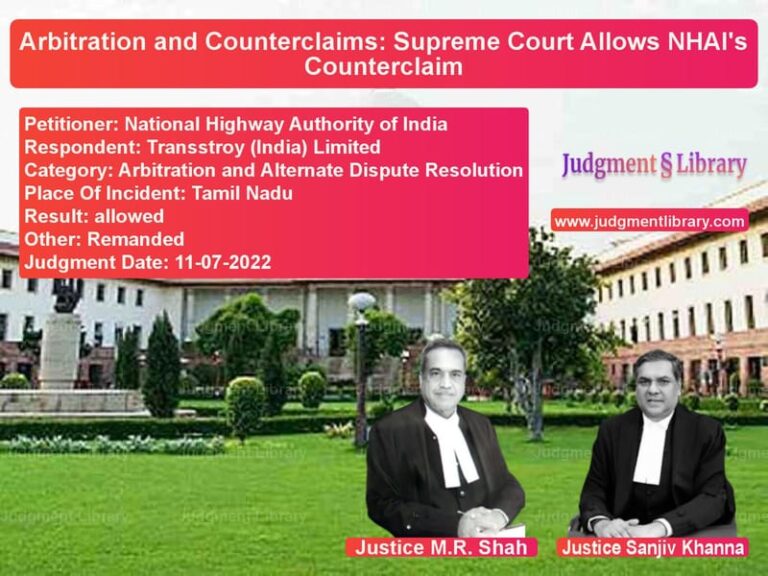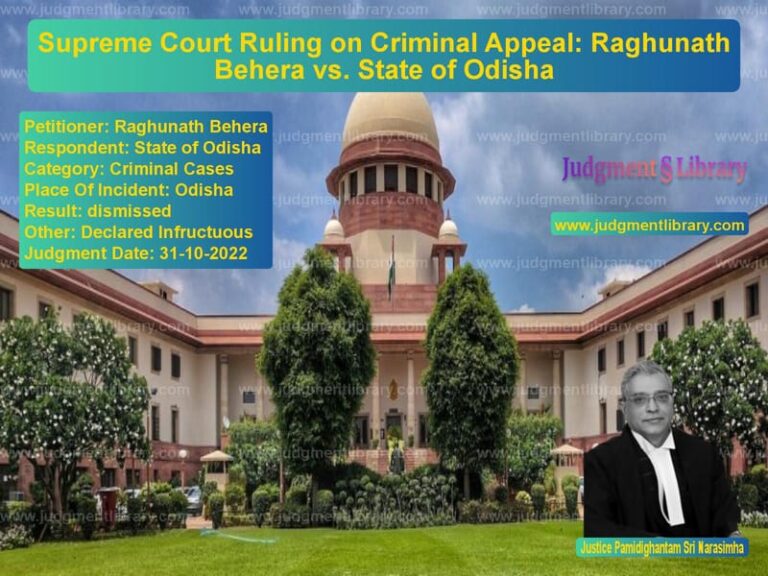Joseph Shine Case: Supreme Court Clarifies Impact on Armed Forces Discipline
The landmark case of Joseph Shine vs. Union of India was a significant moment in Indian legal history, as it struck down Section 497 of the Indian Penal Code (IPC), which criminalized adultery. However, a crucial issue arose regarding the applicability of this ruling to the Armed Forces, where discipline is paramount. In its order dated January 31, 2023, the Supreme Court clarified that its decision to decriminalize adultery does not prevent disciplinary actions under military laws.
Background of the Case
After the Supreme Court struck down Section 497 IPC in 2018, the Union of India filed a miscellaneous application seeking clarification. The government argued that members of the Armed Forces, governed by the Army Act, Navy Act, and Air Force Act, must adhere to strict discipline, and acts such as adultery could still warrant disciplinary action under military laws.
Key Issues Addressed
- Does the striking down of Section 497 IPC affect the Armed Forces’ ability to take disciplinary action for adultery?
- Can military personnel be punished under the Army Act, Navy Act, and Air Force Act for acts that were previously punishable under Section 497 IPC?
- What is the role of Article 33 of the Constitution in restricting fundamental rights of the Armed Forces?
Petitioner’s Arguments
The counsel for Joseph Shine, who had originally challenged Section 497 IPC, contended that:
- The Supreme Court’s ruling was focused on gender equality and personal liberty, making no reference to military laws.
- The judgment should apply universally, including to military personnel.
- Military laws should not curtail fundamental rights beyond what is absolutely necessary for discipline.
Government’s Arguments
The Union of India, represented by Additional Solicitor General Madhavi Divan, argued:
- The Armed Forces require a different legal framework due to their unique role in national security.
- Sections 45 and 63 of the Army Act, along with equivalent provisions in the Navy and Air Force Acts, allow disciplinary action for “unbecoming conduct.”
- Article 33 of the Constitution empowers Parliament to restrict fundamental rights for military personnel to ensure discipline.
- The decriminalization of adultery under Section 497 IPC should not be interpreted as preventing military authorities from taking action under their respective laws.
Supreme Court’s Observations
The Supreme Court, comprising Justice K.M. Joseph, Justice Ajay Rastogi, Justice Aniruddha Bose, Justice Hrishikesh Roy, and Justice C.T. Ravikumar, made the following key observations:
“The judgment of this Court in Joseph Shine v. Union of India (2019) 3 SCC 39 was not at all concerned with the effect and operation of the relevant provisions in the Acts governing the Armed Forces. In other words, this Court was neither called upon nor has it ventured to pronounce on the effect of Sections 45 and 63 of the Army Act as also the corresponding provisions in other Acts.”
Legal Provisions Examined
- Article 33 of the Constitution: Allows Parliament to restrict the fundamental rights of Armed Forces personnel for maintaining discipline.
- Army Act, Section 45: Punishes conduct “unbecoming of an officer.”
- Army Act, Section 63: Penalizes acts “prejudicial to good order and military discipline.”
- Army Act, Section 69: Allows prosecution for civil offenses, but since adultery is no longer a criminal offense, this section cannot be invoked for it.
Final Verdict
The Supreme Court clarified that:
- The decriminalization of adultery under Section 497 IPC does not prevent the military from taking disciplinary action.
- Military laws operate independently and remain applicable under Sections 45 and 63 of the Army Act.
- Courts must interpret Joseph Shine’s ruling narrowly and not extend it to military disciplinary matters.
Impact of the Judgment
This ruling ensures that:
- Military discipline remains intact, preventing misuse of the Joseph Shine judgment to avoid disciplinary actions.
- The Armed Forces retain their ability to enforce ethical standards among personnel.
- There is clarity on the distinction between civilian and military legal frameworks.
Conclusion
The Supreme Court’s clarification in Joseph Shine vs. Union of India provides a much-needed distinction between civilian and military legal frameworks. By ensuring that military discipline remains unaffected, the ruling upholds the integrity of the Armed Forces while respecting constitutional principles.
Petitioner Name: Joseph Shine.Respondent Name: Union of India.Judgment By: Justice K.M. Joseph, Justice Ajay Rastogi, Justice Aniruddha Bose, Justice Hrishikesh Roy, Justice C.T. Ravikumar.Place Of Incident: India.Judgment Date: 31-01-2023.
Don’t miss out on the full details! Download the complete judgment in PDF format below and gain valuable insights instantly!
Download Judgment: joseph-shine-vs-union-of-india-supreme-court-of-india-judgment-dated-31-01-2023.pdf
Directly Download Judgment: Directly download this Judgment
See all petitions in Fundamental Rights
See all petitions in Constitution Interpretation
See all petitions in Separation of Powers
See all petitions in Public Interest Litigation
See all petitions in Judgment by K.M. Joseph
See all petitions in Judgment by Ajay Rastogi
See all petitions in Judgment by Aniruddha Bose
See all petitions in Judgment by Hrishikesh Roy
See all petitions in Judgment by C.T. Ravikumar
See all petitions in partially allowed
See all petitions in Clarified
See all petitions in supreme court of India judgments January 2023
See all petitions in 2023 judgments
See all posts in Criminal Cases Category
See all allowed petitions in Criminal Cases Category
See all Dismissed petitions in Criminal Cases Category
See all partially allowed petitions in Criminal Cases Category







